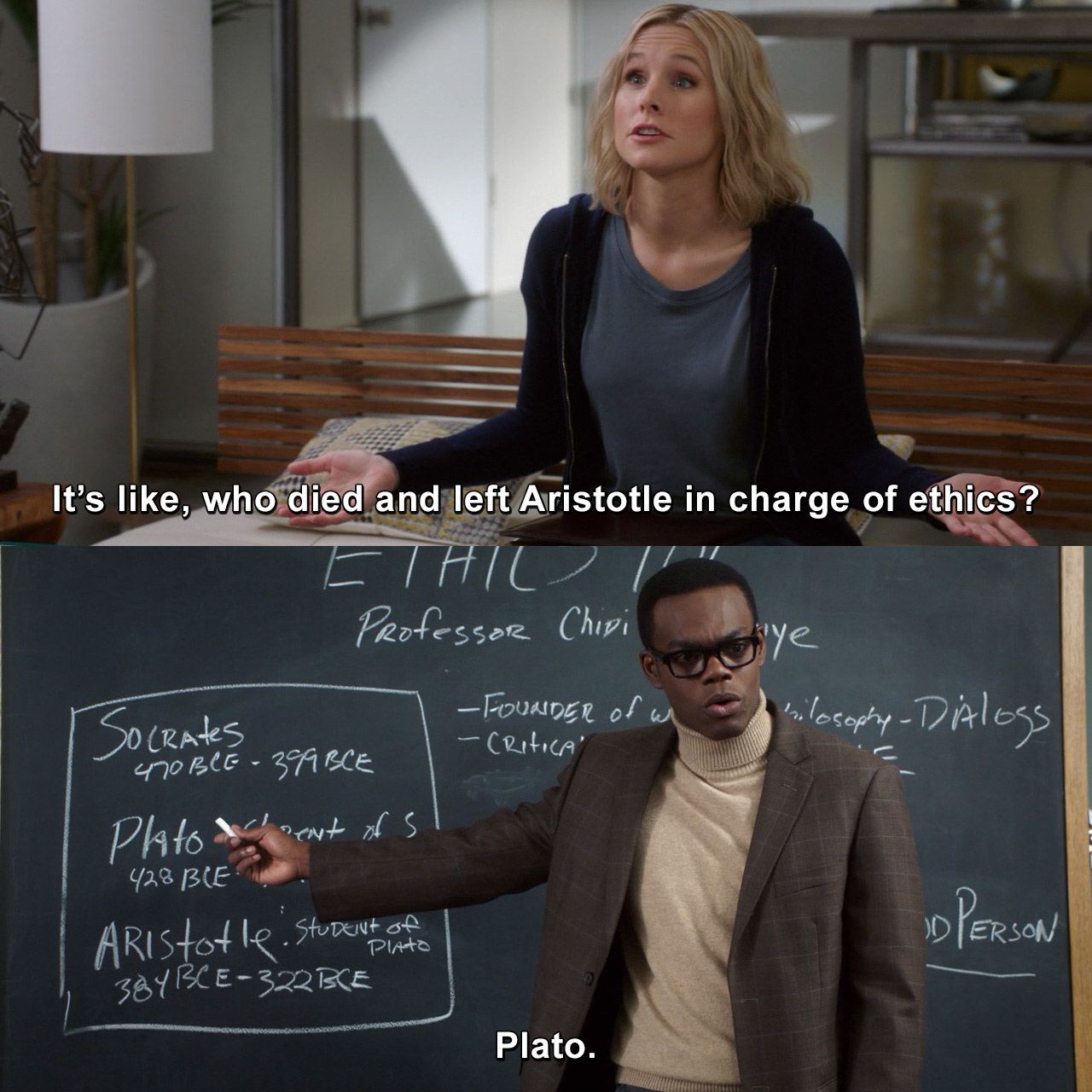The Good Place
This philosophical sitcom turned out to be a sneaker homeschooling hit.

At lunchtime each day, we usually watch one educational show, and follow it with a show that's just for fun. Earlier this year, our "just for fun" show was an undercover learning opportunity: The Good Place.
Wanda loved this show, because it's hilarious. (Everyone on that show did great work, but in particular I hope that every day of Ted Danson's life is filled with extraordinary joy, because he was sublime.) It was so fun for us to watch that her Dad started lining up his lunch breaks so we could all watch together as a family.
But she sneakily learned some great stuff.
She was already familiar with the concept of philosophy, and some of the more famous philosophers, thanks especially to time we've spent with the Philosophy for Kids book by David A. White (read my earlier book review here.).

For Wanda, nothing reinforces the value of the time we've spent learning something more than being able to get a good joke.

That went the other direction, too: she was already familiar with the Trolley Problem, because I'd explained it so she could understand this Dali-esque meme. Beyond laughing at the meme, we'd discussed it as a philosophical problem of course, but getting to see the characters in the show grapple with the Trolley Problem in season 2, episode 5 helped her appreciate how universal these questions truly are.
The show does an excellent job modelling a lot of the deep, hard questions of life:
- What does it mean to be a good person?
- What do we owe each other?
- What matters more: the results of our actions, or our intentions?
These are challenging questions, without easy answers, but the show demonstrates that grappling with these questions is hardly bleak or futile. On the contrary, the show throws its whole weight into showing the value in caring deeply about these questions. It shows that it's worth trying to improve, that it's never too late to try to make things better (even after you're dead!). It shows that all of us are flawed, goofy creatures, and we all have value, we are all worthy of love.
Best of all, it exalts becoming a lifelong learner. An afterlifelong learner, even.

